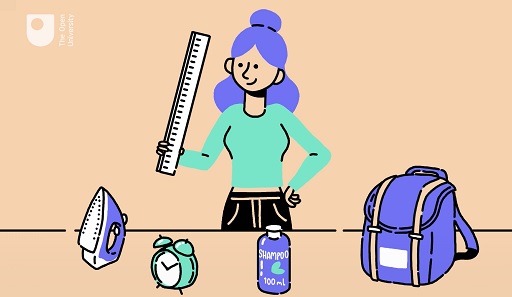Session 2: Units of measure
Introduction
In this session you will be calculating using units of measure and focusing on length, time, weight, capacity and money. You will already be using these skills in everyday life when:
- working out which train you need to catch to get to your meeting on time
- weighing or measuring ingredients when cooking
- doing rough conversions if you are abroad to work out how much your meal costs in British pounds.
By the end of this session you will be able to:
- understand that there are different units used for measuring and how to choose the appropriate unit
- convert between measurements in the same system (e.g. grams and kilograms) and those in different systems (e.g. litres and gallons)
- use exchange rates to convert currencies
- work with time and timetables
- work out the average speed of a journey using a formula.
First watch the video below which introduces units of measure.

Transcript
[MUSIC PLAYING]
A unit of measure is the unit you use to measure something, whether it's weight, time, volume, or simply measuring the size of something. Knowing the appropriate unit to use in any situation can be very important. And can avoid some basic errors.
A unit of measure is the unit you use to measure something, whether it's weight, time, volume, or simply measuring the size of something. Knowing the appropriate unit to use in any situation can be very important. And can avoid some basic errors.
Learning to convert between different units of measure can also be very useful. Knowing how to weigh your luggage correctly could even save you money. And understanding the relationship between units of measure, like speed and distance, can be vital if you're planning a journey and can't afford to waste time. But though understanding units of measure is a very useful skill, it can't help in every situation.
